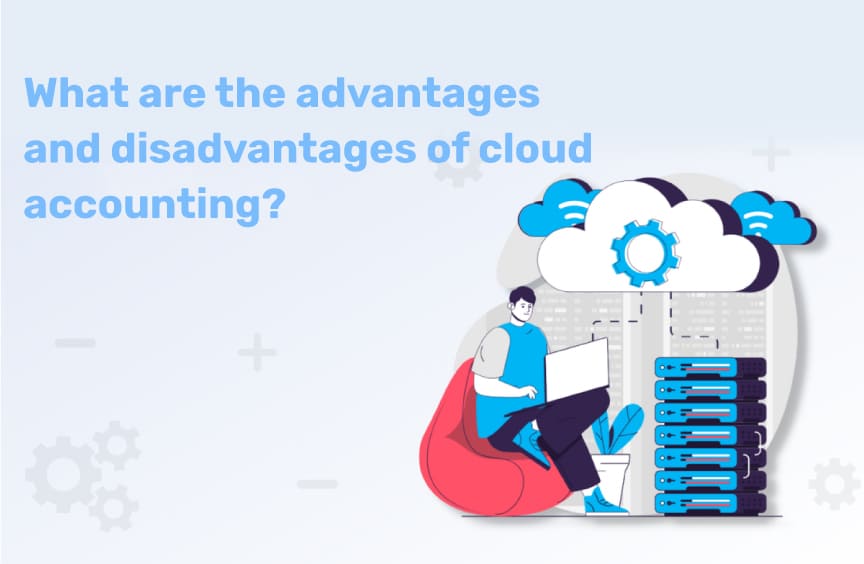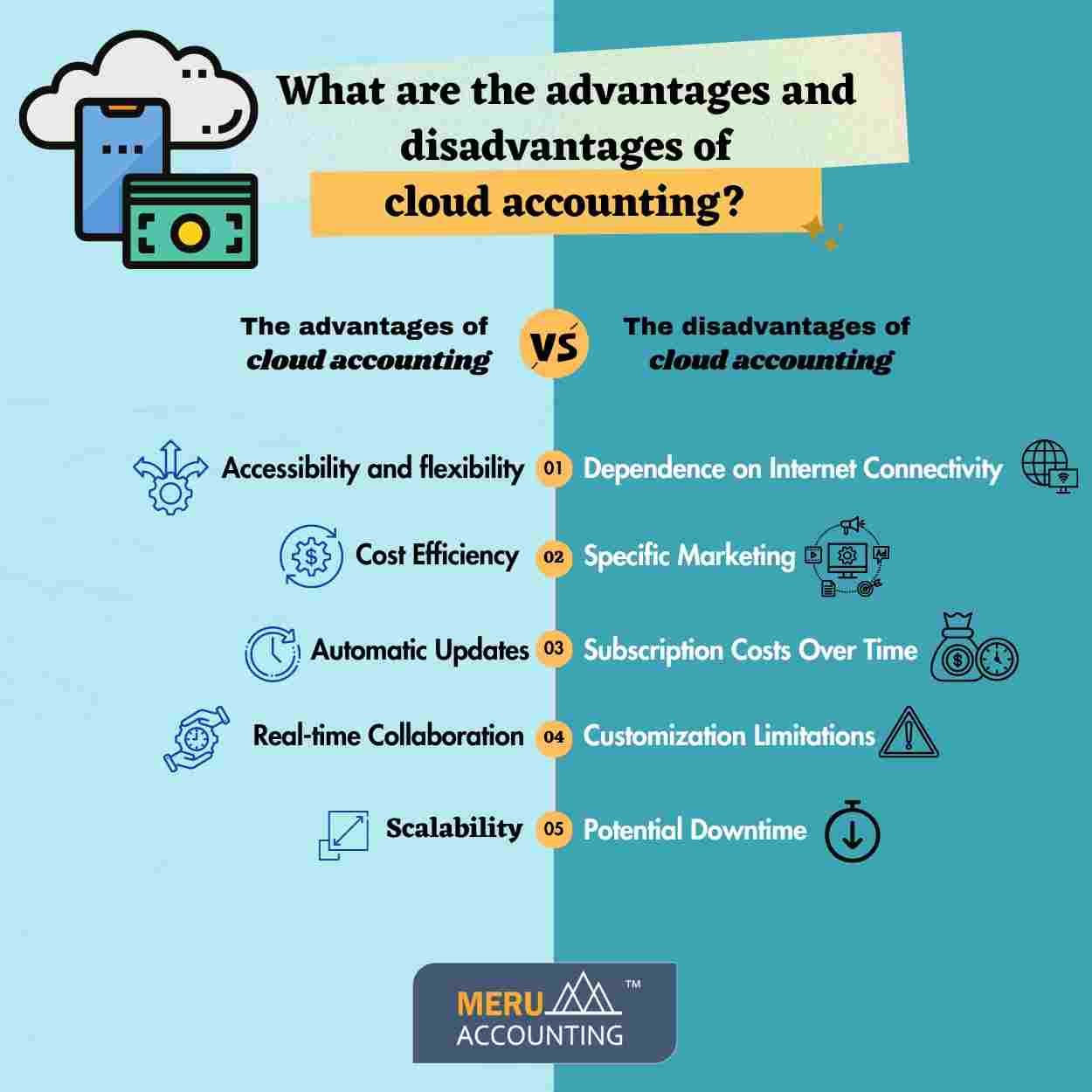Table of Contents
- 1 The benefits of cloud accounting are as follows:
- 1.1 Accessibility and Flexibility:
- 1.2 Cost Efficiency:
- 1.3 Automatic Updates:
- 1.4 Real-time Collaboration:
- 1.5 Scalability:
- 2 The disadvantages of cloud accounting are as follows:
- 2.1 Dependence on Internet Connectivity:
- 3 Data Security Concerns:
- 3.1 Subscription Costs over Time:
- 3.2 Customization Limitations:
- 3.3 Potential Downtime:

What are the advantages and disadvantages of cloud accounting?
Cloud accounting has emerged as a game changer for businesses, providing various benefits in this world of technology and innovation. However, as with every breakthrough, there are certain downsides. Let's look at the main advantages and disadvantages of cloud accounting.
The benefits of cloud accounting are as follows:
Accessibility and Flexibility:
Cloud accounting offers exceptional accessibility and flexibility, enabling users to access financial data from anywhere with an internet connection. This flexibility is especially useful for firms with remote or distributed staff, as it allows for collaborative work without geographic boundaries.
Cost Efficiency:
Traditional accounting software frequently necessitates large initial investments and continuous maintenance costs. Cloud accounting, on the other hand, is often delivered through a subscription model, removing the need for costly installations and updates. This cost-effective technique is especially beneficial to small and medium-sized businesses (SMEs) with restricted budgets.
Automatic Updates:
The cloud accounting software is constantly updated by providers, ensuring that users have access to the most recent features and security improvements. This eliminates the need for manual upgrades, allowing businesses to focus on their core activities while gaining the benefits of an evolving system that meets industry standards.
Real-time Collaboration:
Cloud bookkeeping encourages real-time cooperation between team members and external stakeholders. Multiple users can collaborate on the same set of financial data, improving communication and lowering the risk of errors associated with manual data transfers. This collaborative environment promotes effective decision-making processes.
Scalability:
The cloud bookkeeping systems are extremely scalable, adjusting smoothly to the changing needs of enterprises. As businesses grow, they may quickly update their subscription plans or introduce new services without requiring extensive IT infrastructure upgrades. This scalability is especially useful for start-ups and fast-growing businesses.
The disadvantages of cloud accounting are as follows:
Dependence on Internet Connectivity:
One of the main drawbacks of cloud accounting is its reliance on a consistent internet connection. Users in areas with unstable internet access may encounter disruptions, limiting their ability to obtain critical financial data and complete necessary accounting procedures.
Data Security Concerns:
While cloud providers use strong security procedures, some firms are hesitant to transfer critical financial information to external servers. Concerns about data breaches and illegal access can discourage some firms from implementing cloud accounting systems.
Subscription Costs over Time:
While the subscription model eliminates upfront costs, the long-term expenses may exceed the one-time cost of traditional accounting software. Businesses should carefully consider the long-term financial ramifications of recurring subscription prices.
Customization Limitations:
The cloud bookkeeping software may not always meet the individual requirements of each firm. While providers offer a variety of capabilities, customization may be limited. This might present difficulties for businesses with unusual or sophisticated accounting obligations.
Potential Downtime:
Despite efforts to maintain continuous service, cloud bookkeeping solutions may face downtime owing to server difficulties, maintenance, or unexpected technical glitches. Businesses must plan for the possibility of temporary delays in their accounting procedures.
For expansion and development of your business entity with qualified and experienced bookkeepers, get in touch with Accounts Junction, a CPA outsourcing firm that offers certified bookkeepers in addition to a variety of other accounting services.

